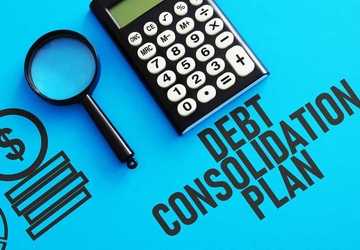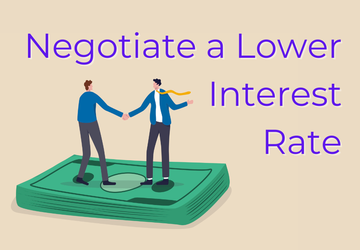3 Strategies to Reduce Debt Payments and Save $200 Monthly
The feeling of owing someone money can be burdensome not only in terms of your wallet but also your mental health. It can deny you sleep; you wake up in the middle of the night thinking of how to get the next meal and the next day’s bills.
Imagine how much lighter your debt burden is going to be and how much more money you can keep in your pocket each month, $200, to be exact.
This could bring a lot of benefits, including the aspect of being financially secure and having a sound mind.
In this blog post, we are going to look at three potent tactics that could assist you in reducing your debt and saving lots of money monthly. These techniques are easy to understand, simple, and could be implemented into practice.
Let’s now find out how you can begin to save $200 every month and attain the financial freedom you desire.
Why Is Reducing Debt Important?

The two are vital for ensuring long-term financial stability, and therefore, it is crucial to minimize and control debt.
Reducing your debt payments is not solely about saving your hard-earned cash; many advantages stem from it.
Another advantage that comes with it is the improvement of credit scores, which enables one to have a better rating. You will see your credit scores rise automatically as you gradually repay your debts, thus reducing your credit utilization ratios.
A good credit standing opens doors to access better interest rates when borrowing money, such as on car loans, credit cards, and other loans, which can save a lot of money in the long run.
Also, your overall expenditure will be brought down, especially your debt payments and hence your disposable income will be higher.
This extra money can be used to create an emergency fund, provide for your retirement, or live a little.
Debt management also affects the well-being of a person in a huge way. Money problems are a shared problem that is capable of influencing the physical and social conditions of an individual.
Debt is like a disease that slowly consumes a person, so by doing everything possible to fight it, you will feel much better. This can help in lowering stress levels, improve sleep quality, and even give a positive outlook on life.
3 Strategies to Reduce Debt Payments and Save $200 Monthly
Now that you have properly understood the background knowledge of how useful it is to minimize your debt, let’s look at three practical and effective ways to help you pay less of your debt and save more each month.
Strategy 1: Consolidate Your Debt
Debt consolidation is indeed a good tool to reduce your monthly payments towards debts.
When you take a number of high interest-bearing debts and consolidate them into a single loan with a lower interest rate, then you are able to keep the number of debts down and, more so, be in a position to save money.
Some actions that can be taken are personal loans, balance transfer credit cards, home equity loans, or debt consolidation loans. It has the advantage of consolidating the bills and paying only one monthly installment instead of many.
The fact that you have a lower interest rate means you will be charged less interest on your loan, which in turn means more money goes towards paying off the principal.
This can be advantageous in that costs are incurred in the long run, hence saving a lot of money.
Strategy 2: Negotiate Lower Interest Rates

The final way that has been effective in cutting down on your debt payment is by negotiating with your creditors for lower interest rates.
High interest rates have the potential of raising your monthly payments to clear the debts, hence proving to be challenging.
You may negotiate with your creditors and ask them to reduce your interest rates.
Expect to be asked about your past payment record and your current financial performance to build your case.
So, if you have a good credit score and you have always been prompt in your payments, your creditors are more likely to be flexible with you.
It may not seem much, but just a small change in the interest rates can drastically affect your monthly commitments.
Strategy 3: Create and Stick to a Budget
To effectively handle your debt, it is essential to develop a plan on the amount of money that you are willing to spend and adhere to it.
It is important to monitor your income and expenditure to identify areas that could be adjusted to free up cash for use in paying your debts.
To get started, it is important to go through all the income sources and monthly expenses. This way, one will be in a position to determine the amount of money they can afford to spend on the various needs that are required to be met.
Try to find areas where you can cut back on spending and where the money can be saved, for instance, on unnecessary products and services, meals in restaurants, and other entertainment.
They are usually a form of expense that can be reduced, thus directing the money saved toward paying the debts.
Spend the additional money that you trim from your budget towards repaying the debts, paying off the ones with higher interest rates first.
This will ensure that you repay your loan faster and save on the interest rates that would have been charged in the later periods.
Start Reducing Your Debt Payments Today
These three strategies include consolidating the outstanding debts, bargaining for lower interest rates, and preparing a budget to help reduce monthly payments and begin saving money.
There is no reason why you should not exercise control over your financial future.
Start your new life now and be free from all the stress and dependency that come with high levels of debt.
Many people have applied these techniques to reduce their expenses and get hundreds of dollars in their savings each month.
You, too, can benefit from this news and take action now to get the same results.
Cut down on your costs and begin the process of eradicating debt from your life and opening the door to a better financial tomorrow.
Frequently Asked Questions
Q. What are the ways to manage debt and reduce paying several companies and banks at once?
Ans. Do research about the options that are available, such as personal loans, balance transfer credit cards, or home equity loans. Compare the various options available with the aim of selecting one that will attract a low-interest rate and more favorable terms in order to ensure debt consolidation and reduction of monthly installments.
Q. What are some key phrases or questions that might be useful when trying to negotiate lower interest rates with creditors?
Ans. Express and genuine need for a reduced interest rate and how it would assist in repaying the borrowed amount. Emphasize your payment history and repayment capacity in the context of your credit card usage. It is necessary to be polite but do not be shy and make the person hear what you need from him.
Q. How can I be able to plan a reasonable budget that will help me meet my debt obligations?
Ans. First, write down all of the things that bring you money and all the things that take your money. Find opportunities for reduction of spending, and use the money that you save to pay off your debt. There are many ways to budget, and you can use a particular tool or an application that will help you monitor your spending habits.





